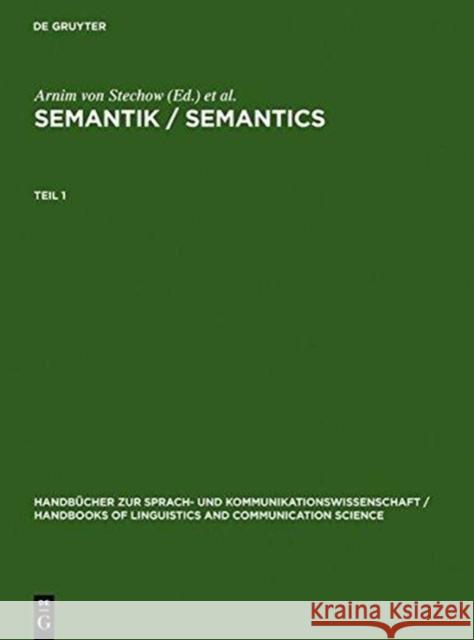Semantik. Semantics : Ein internationales Handbuch der zeitgenössischen Forschung. (Z. Tl. in engl. Sprache) » książka
Semantik. Semantics : Ein internationales Handbuch der zeitgenössischen Forschung. (Z. Tl. in engl. Sprache)
ISBN-13: 9783110126969 / Angielski / Twarda / 1991 / 935 str.
Semantik. Semantics : Ein internationales Handbuch der zeitgenössischen Forschung. (Z. Tl. in engl. Sprache)
ISBN-13: 9783110126969 / Angielski / Twarda / 1991 / 935 str.
(netto: 1821,37 VAT: 5%)
Najniższa cena z 30 dni: 1912,44
ok. 30 dni roboczych
Bez gwarancji dostawy przed świętami
Darmowa dostawa!
During the past 20 years the investigation into meaning of natural languages has emerged into one of the most active disciplines in theoretical linguistics. The different traditions of linguistics, philosophy of language and philosophical logic converged in the paradigm of truth conditional semantics, which now plays a central role in the cognitive sciences. From empirical research in particular languages more principal questions arise of how the speaker succeeds in expressing particular types of meaning by use of formal combination of signs. The theories developed to cope with the question assume that for a hearer, the meaning of a complex expression must be "computable," and therefore, modern theoretical semantics uses formal algebraic methods to construct the meaning compositionally in view of syntactic structur. Furthermore, meaning need to be "anchored" in the experience available to hearer. In order to deal with this, theoretical semantics extensivly uses the concept of truth conditions, which roughly explain how a world must be structured in order to be matched by certain linguistic expressions. Semantic analyses are complemented by context theory and the theory of speech acts. Thus, linguistic meaning must be related to human cognitive capacities, and therefore, theoretical semantics is tightly connected with philosophical logic as well as cognitive sciences in general. The aim of this handbook is to represent the body of theoretical knowledge which has evolved in the international research of the last two decades. Some of the theories can now be termed "classical" in that they belong to the commonly accepted base of theoretical semantics. Other theories are still disputed, and there areproblems still to be solved - as normal in a more developed science. The authors, who are leading experts in the field of semantics, try to balance the accepted and the questionable results. It goes without saying that each author hold a particular position in this respect. S











